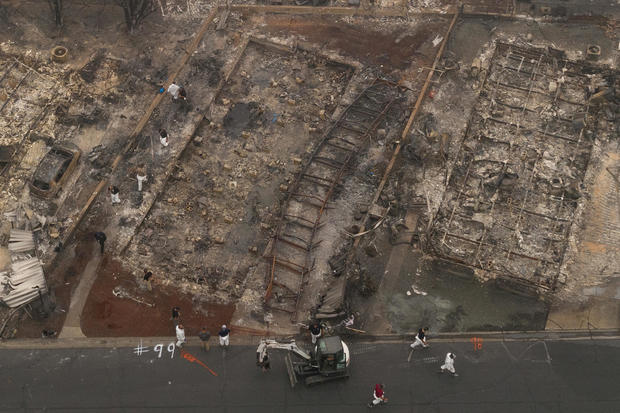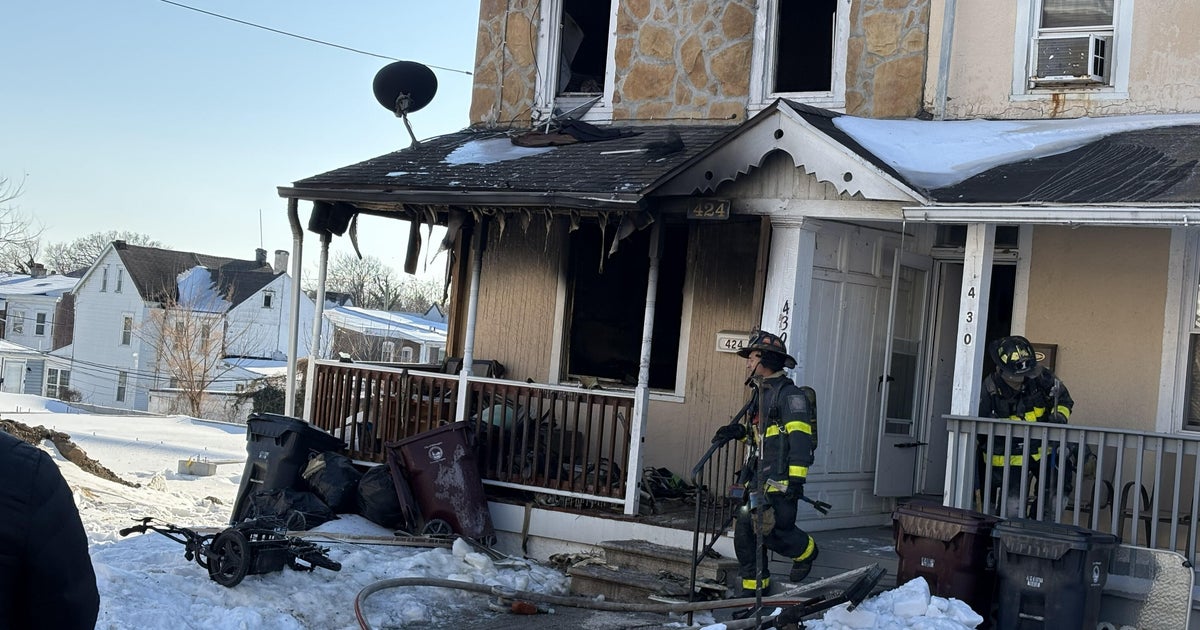Cadaver dogs search for the missing as Western wildfires leave communities reeling
Dozens of people are dead across three states and at least 24 are missing as major wildfires continue to wreak havoc on the West Coast. In California, more than 3 million acres have burned and more than 16,000 firefighters are trying to quell the flames.
CBS News correspondent Jonathan Vigliotti reports that crews are using cadaver dogs to search through charred rubble in southeastern Oregon, looking for any sign of the missing. Fast-moving flames ripped through nearly half a dozen towns last week, giving residents little time to escape. Even heavy-duty flame retardant was not enough to save home homes.
Some residents like Ashley Britten are seeing the destruction for the first time.
"It's the worst thing I've ever seen in my life, it's… I had seen videos, but it's a thousand times worse than I could have ever imagined," Britten said.
Firefighters across the West have been battling shifting winds as they try to gain control of dozens of fires. The hazardous smoke is so severe the National Weather Service says it has created a haze across the entire country.
Relief from dangerous air spewing from massive wildfires across the West won't come until later in the week or beyond, scientists and forecasters say.
People in Oregon, Washington and parts of California were struggling under acrid yellowish-green smog - the worst, most unhealthy air on the planet according to some measurements. It seeped into homes and businesses, sneaked into cars through air conditioning vents and caused the closure of iconic locations such as Powell's Books and the Oregon Zoo in Portland, the state's biggest city.
"I don't think that we should be outside, but at the same time, we've been cooped up in the house already for months so it's kind of hard to dictate what's good and what's bad. I mean, we shouldn't be outside period," said Issa Ubidia-Luckett, a Portland resident, who was grabbing lunch on Monday.
Oregon's Department of Environmental Quality extended an air quality alert to Thursday after it was to initially expire on Monday. The air was so thick that on Monday Alaska Airlines announced it was suspending service to Portland and Spokane, Washington, until Tuesday afternoon. Hazy, smoky skies fouled Washington state and experts said some parts of California might not see relief until next month.





